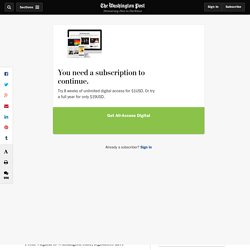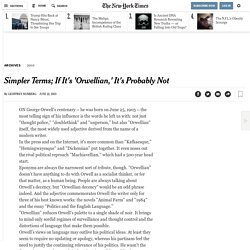

Republican lawmakers introduce bills to curb protesting in at least 18 states. Since the election of President Trump, Republican lawmakers in at least 18 states have introduced or voted on legislation to curb mass protests in what civil liberties experts are calling “an attack on protest rights throughout the states.”

From Virginia to Washington state, legislators have introduced bills that would increase punishments for blocking highways, ban the use of masks during protests, indemnify drivers who strike protesters with their cars and, in at least once case, seize the assets of people involved in protests that later turn violent. The proposals come after a string of mass protest movements in the past few years, covering everything from police shootings of unarmed black men to the Dakota Access Pipeline to the inauguration of Trump. Some are introducing bills because they say they're necessary to counter the actions of “paid” or “professional” protesters who set out to intimidate or disrupt, a common accusation that experts agree is largely overstated.
Arizona Iowa.
Newspeak, Trumpspeak. 1984 review – stage adaptation confuses Orwell's classic. The adaptation of George Orwell’s novel, 1984, currently playing in Adelaide is an English production that came to the Melbourne Festival two years ago.

Of its swift return to Australia, this time for a national tour, the playwrights Robert Icke and Duncan Macmillan wrote: “Even more now than last time we visited, Orwell’s dystopian vision of a surveilled and totalitarian world seems horribly relevant.” Australian political events that make the story “horribly relevant” include the metadata retention laws that began in April, and the habit of successive immigration ministers of shoving truth down the “memory-hole”. (The chute used in 1984 to dispose of proof that doesn’t support the ruling party’s agenda.) But the production’s relevance is really a global phenomenon. 1984 swept to bestseller status in January after President Trump’s advisor Kellyanne Conway used the phrase “alternative facts”. The first challenge is how to stage Oceania. Not in the play, however.
Evaluating Sources in a ‘Post-Truth’ World: Ideas for Teaching and Learning About Fake News. Teaching Orwell and ’1984’ With The New York Times. In 1949, when George Orwell’s “1984” was first published, The New York Times book reviewer wrote that, though it was “not impressive as a novel about particular human beings,” as a “prophecy and a warning” it was “superb.”
Right now, many seem to agree. The novel, about a dystopian future where critical thought is suppressed under a totalitarian regime, has seen a surge in sales this month, rising to the top of the Amazon best-seller list in the United States and leading its publisher to have tens of thousands of new copies printed. Teachers, too, are seizing the moment. The Huffington Post writes that “High School Students Reading ‘1984’ See A Mirror, Not Science Fiction.” The piece begins: Below, a few ideas for pairing the themes in “1984” with what’s happening in the world today, along with a full list of resources for teaching Orwell in general. George Orwell’s ‘1984’ Is Suddenly a Best-Seller. Learning.blogs.nytimes. Simpler Terms; If It's 'Orwellian,' It's Probably Not. But Orwell is the writer most responsible for diffusing the modern view of political language as an active accomplice of tyranny.

As he wrote in ''Politics and the English Language,'' ''Political language . . . is designed to make lies sound truthful and murder respectable, and to give an appearance of solidity to pure wind.'' That was an appealing notion to an age that had learned to be suspicious of ideologies, and critics on all sides have found it useful to cite ''Politics and the English Language'' in condemning the equivocations of their opponents. Critics on the left hear Orwellian resonances in phrase like ''weapons of mass protection,'' for nonlethal arms, or in names like the Patriot Act or the Homeland Security Department's Operation Liberty Shield, which authorizes indefinite detention of asylum-seekers from certain nations.
Which of those terms are deceptive packaging and which are merely effective branding is a matter of debate. Orwell knew that, of course. Hey, Teens: Your Parents Are Probably Checking Your Facebook [STUDY] Parents are getting increasingly savvy to the online behaviors of their teenagers, and consequently, the majority of parents are monitoring their teen's usage of social networking sites, according to a study published earlier this week.
![Hey, Teens: Your Parents Are Probably Checking Your Facebook [STUDY]](http://cdn.pearltrees.com/s/pic/th/probably-checking-facebook-190398792)
The survey of 2,000 parents and teenagers by TRUSTe and Lightspeed Research found that 72% of parents check in on their teen’s social networking accounts at least once per month. That’s made easier by the prevalence of Facebook – 95% of parents and 90% of teens with a social networking account have one on Facebook, and “most of those teens are friends with their parents,” according to the study. That said, most parents are actually fairly confident in how their teens use social networking sites, with 84% reporting that they are “confident their teen is responsible with personal information on a social networking site.” Little Brother Is Watching.